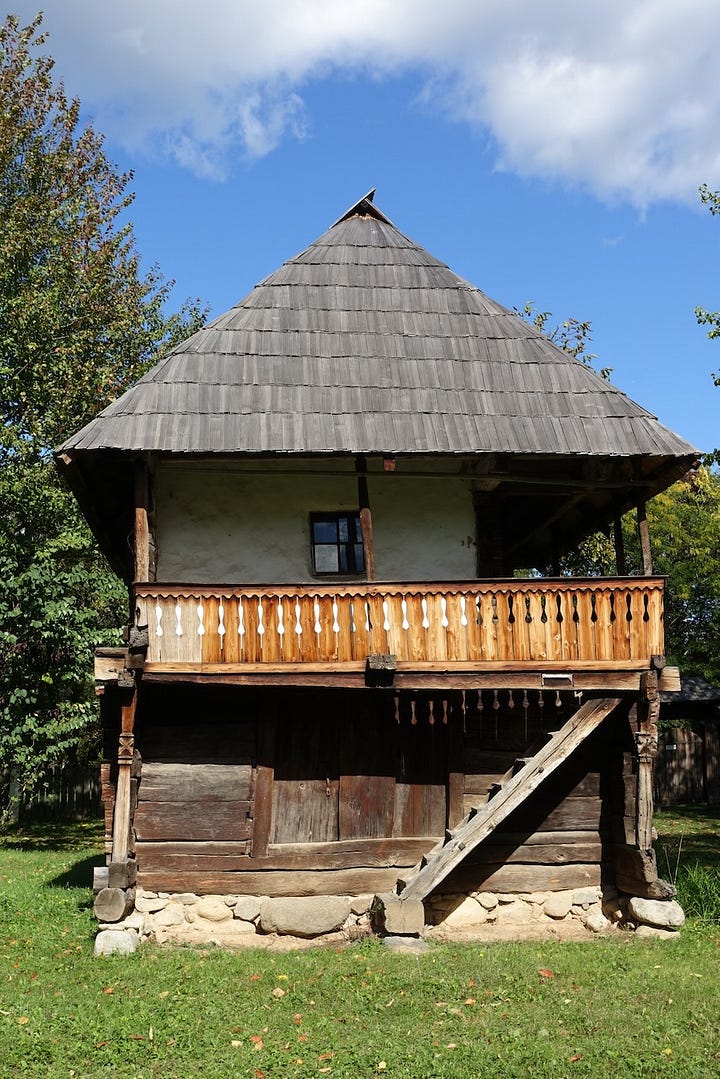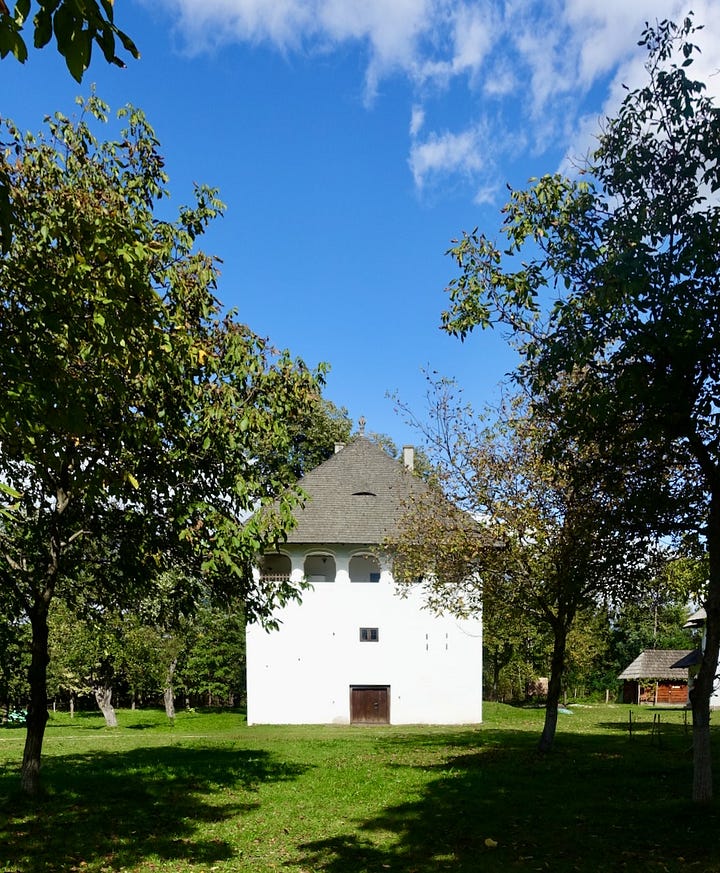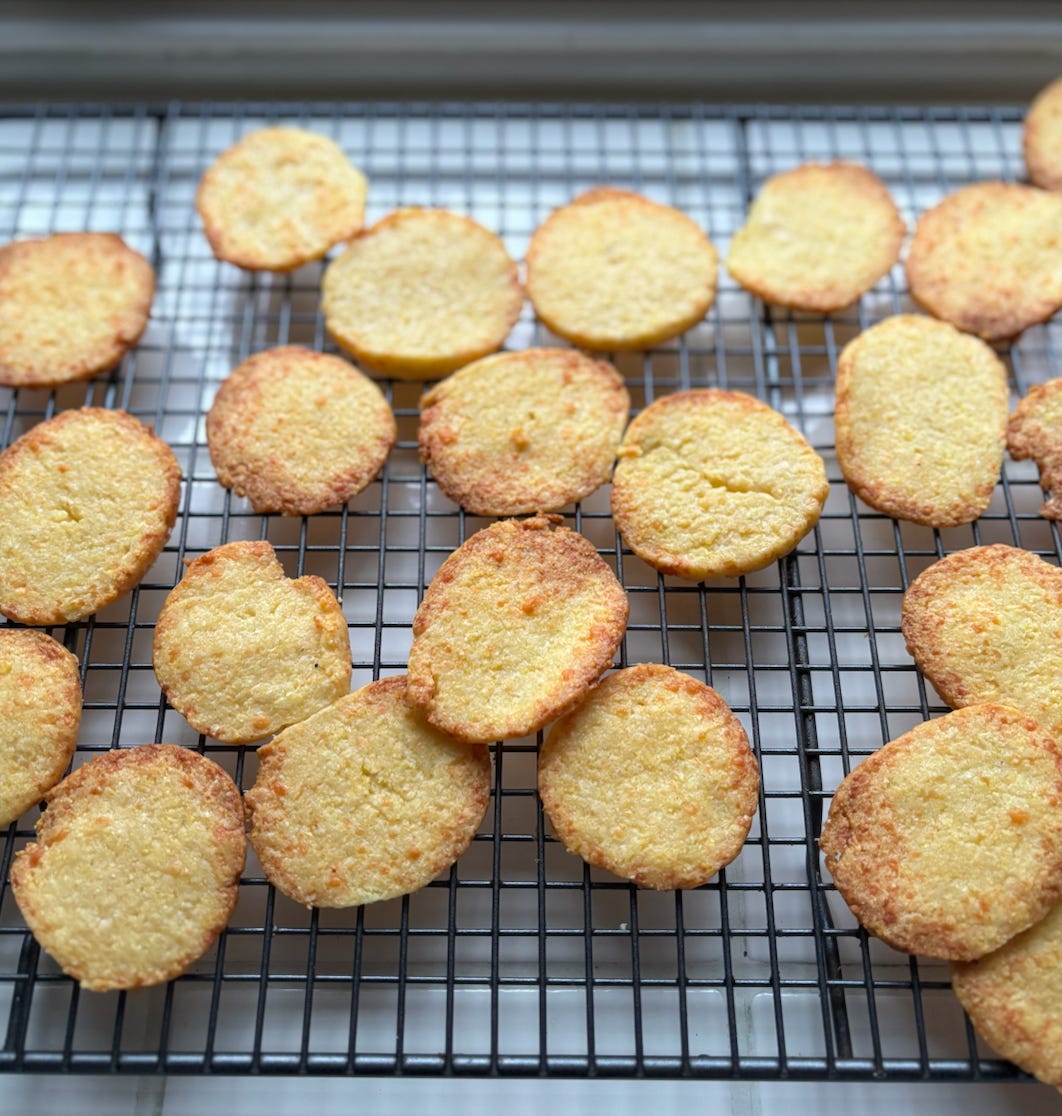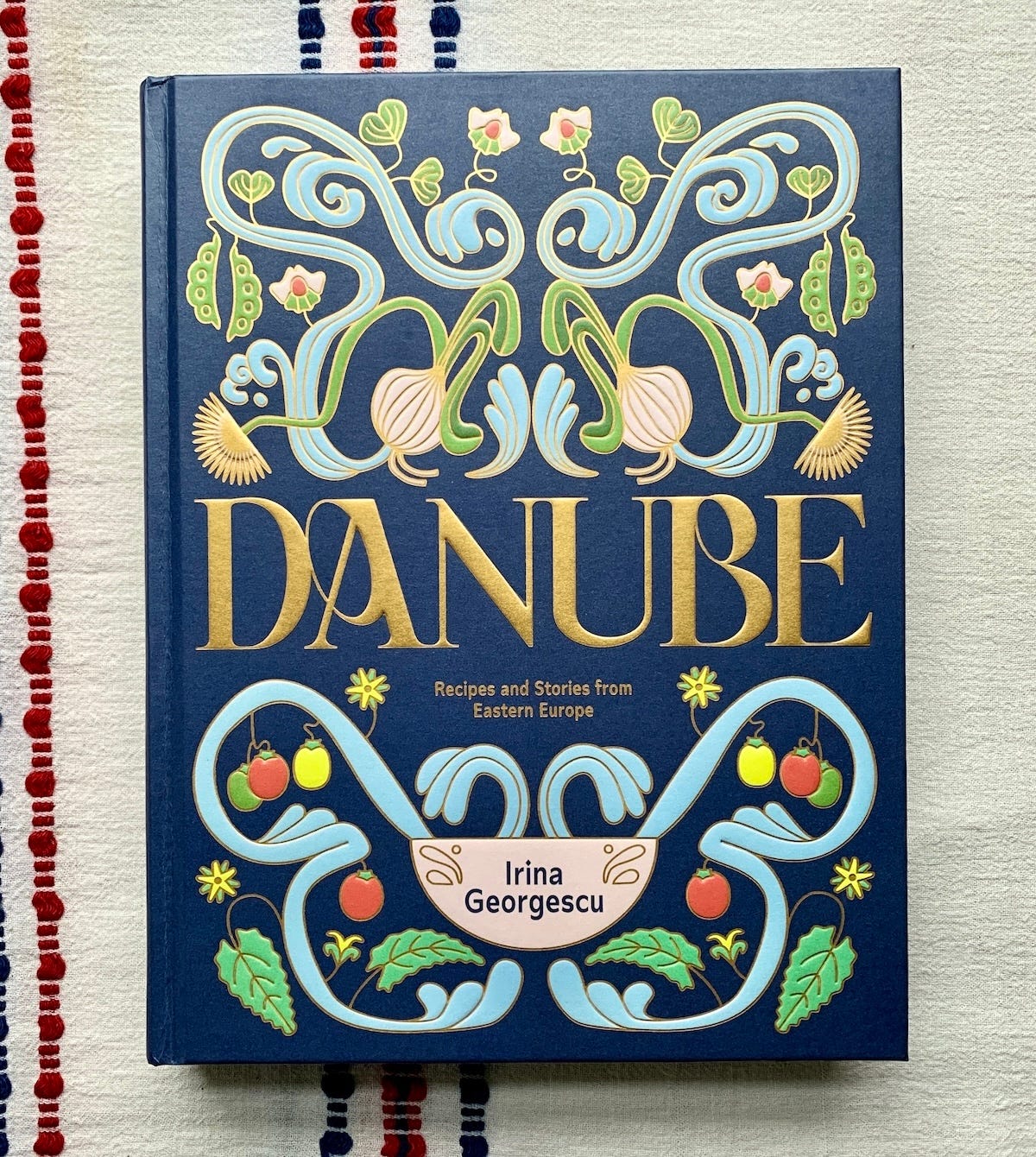In my new book, ‘Danube, Recipes and Stories from Eastern Europe’, I say that if there is no cornmeal on the table in Romania, there is no meal. Therefore, you will find quite a few recipes in which cornmeal is a hero ingredient or a side dish that is just as brilliant as the main dish.
So, turn the sound on and up:
This recipe combines two ingredients from southern Oltenia: wine and cornmeal. One grape variety, Seibel, known locally as Zaibăr, has brought fame to the region—even though it originates from France. In winemaking, ‘le terroir' really matters, and Oltenia's rich soil and gentle hills have had a delightful impact on the grape. It is usually red, and, therefore, not ideal for the recipe below, but you can choose an alternative.
You can use a flavourful and slightly sweet white wine to contrast the saltiness of the cheese. Or…use a very dry, bold white to impart a light acidity to the crackers. I often use a Gewürztraminer, for its floral notes. Either way, serve the crackers with charcuterie or vegetarian spreads, such as the garden pea spread on page 95 in my book Danube (buy it here)
Oltenian Cule
As usual, this recipe comes with a story. I like to use the space in my books to offer a broader context of certain ingredients or dishes, and on this occasion, I talk about another element that defines the region of Oltenia: cule, a type of fortified house.
You see two examples below: a brick cula using the same principle as an archaic wooden cula.


The name is of Ottoman origin, cule meaning ‘towers’ in Turkish.
With metre-thick walls and an elevated ground level, the brick cule had a single entrance secured by a fortified door. At the top, there was an open gallery from where people were able to fight back. However, the fortifications were light, kitted out to ward off a bunch of thieves rather than to halt an army.
The particularity in Romania is that they are built with bricks and rendered with lime wash, while in the neighbouring Balkans, they are made of stone and left bare.
In time, these cule were expanded and converted into homes owned by cosmopolitan people inspired by their travels around the world. In ‘Danube’ you will discover the story of Curtișoara Cula.
Therefore, this recipe for cornmeal and wine crackers is inspired by the more refined cooking style typical of such a household.
The Recipe
Cornmeal and wine crackers, Biscuiți Oltenești
Ingredients
75 g fine cornmeal (polenta)
100 g plain (all-purpose) flour
60 g salted butter
100 g Romanian cașcaval or extra-mature Cheddar, grated
40–60 ml white wine
Method:
Use a food processor with a blade attachment to blend together the cornmeal, flour and butter to a coarse consistency. Add the rest of the ingredients and pulse a few times until they form a rough, sticky dough. Turn it out onto a piece of cling film (plastic wrap), press it down and roll it into an 18 cm log, 4–5 cm in diameter. Put it in the freezer while you wait for the oven to heat.
Preheat the oven to 160°C fan.
Cut the log into 3 mm slices if you want them crispy and thin, or 5–8 mm slices if you want them to resemble a biscuit. Make sure all the slices are the same thickness and place on a baking sheet.
Bake for 12–14 minutes, then transfer to a cooling rack.
I usually bake them in batches, and I confess that by the time the second batch is ready, the first has already vanished. I eat them on their own, straight off the cooling rack, the first one or two just for ‘testing’ - I say to myself, then the rest because I can’t stop. The combination of cheese, wine and polenta is utterly moreish. You’ll see.
Words or praise for Danube
"Utterly transporting – Irina’s wonderful recipes and sparkling writing made me hungry to eat and to travel." – Mark Diacono
"Danube is an enticing introduction to the rich culinary traditions of people living in the regions the Danube River traverses on its way to the Black Sea. Photographs and stories about life in Romania opened my eyes to its rich history, from the time of the Romans to the present day. This is a book to read with pleasure as well as to cook from!" – Naomi Duguid
From Dorie Greenspan
‘Speaking of the food of the Danube, Irina says: “It’s a diverse cuisine, whose main ingredient is generosity.” As I paged through the book, I found myself craving the soups and the flatbreads, the noodles and stews, the beans and grains that fill out some dishes and stand alone in others, the cornmeal. Especially the cornmeal. When Irina wrote, “If there is no cornmeal, there is no meal,” and when she led us to the first recipe in the book, the “mother recipe” for mǎmǎligǎ, polenta, she unlocked a little corner of my childhood.’
Read her post and make the two free recipes she mentions here.
The highlight of my week: Two articles in The Independent
You can find them online.











What an intriguing blend of ingredients! Very inspiring, thanks, Irina 💐
Yesssss!
I was looking for a polenta cracker recipe about a week or so ago! I am going to make these.